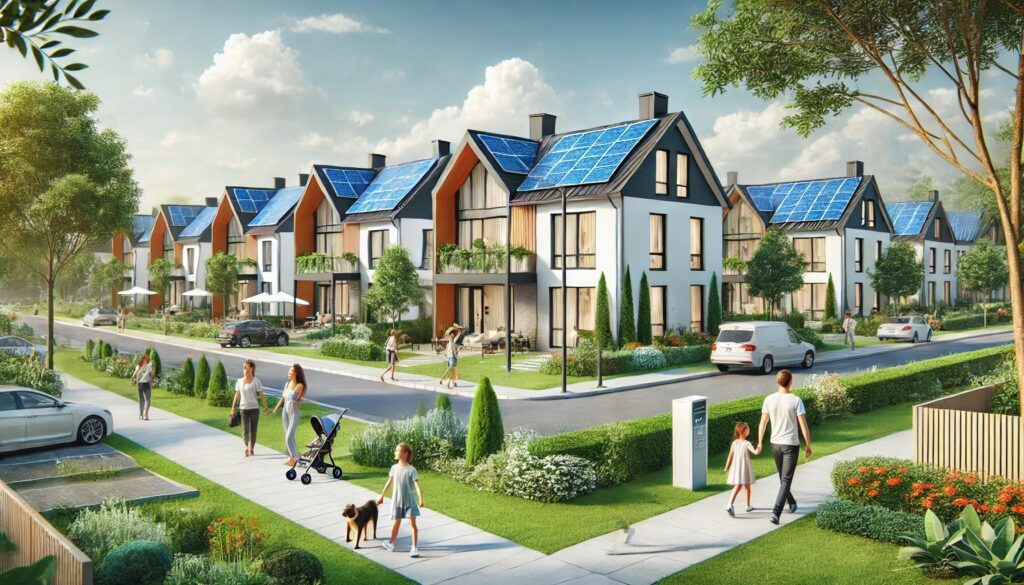The real estate market is evolving rapidly, influenced by technological advancements, economic shifts, and changing consumer preferences. As we navigate through 2024, several trends are shaping the industry, providing new opportunities and challenges for real estate professionals. Therefore, this article explores the top five trends in real estate this year, focusing on how they impact the market and what they mean for buyers, sellers, and agents.
1. Digital Transformation in Real Estate
The digital revolution continues to shape the real estate industry. Buyers and sellers increasingly rely on digital tools for property searches, virtual tours, and transactions. Technologies like artificial intelligence (AI) and augmented reality (AR) are becoming integral to the process, offering enhanced property viewing experiences and more efficient marketing strategies. For instance, AI can help craft compelling real estate ads free from the traditional constraints of manual copywriting, improving engagement and conversion rates.
2. Energy-Efficient and Eco-Friendly Homes
Sustainability is a significant trend in 2024, with many buyers seeking energy-efficient and eco-friendly homes. Features such as solar panels, eco-heating systems, and energy-efficient appliances not only attract environmentally conscious buyers but also offer substantial financial savings and potential tax benefits. These green homes are also likely to have higher resale values, making them a smart investment.
3. The Shift to Suburban Living
The pandemic has accelerated the migration from urban centers to suburbs, a trend that continues into 2024. Many Americans are opting for the space, affordability, and quality of life that suburban areas offer. This shift is driving up demand for single-family homes and reshaping the housing market dynamics. Suburban areas are seeing a surge in new developments, and real estate agents focusing on these regions can find significant opportunities.

4. Smart Home Technology
Smart home features are no longer a luxury but a standard expectation for many homebuyers. Integrated security systems, smart lighting, automated climate control, and voice-activated devices are becoming common in modern homes. These technologies enhance convenience, security, and energy efficiency, making properties more attractive to tech-savvy buyers. Real estate agents should highlight these features in their listings to appeal to this growing market segment.
5. Virtual and Augmented Reality Tours
The convenience of virtual viewings, which gained popularity during the pandemic, remains a key trend. In 2024, the use of virtual reality (VR) and augmented reality (AR) is expanding, offering immersive property tours that allow buyers to explore homes from the comfort of their own space. You can also use these technologies for virtual staging, providing a cost-effective way to showcase properties to potential buyers without physical alterations (homesandgardens.com).
Conclusion
Staying ahead of these trends is crucial for anyone in the real estate market. Therefore, welcoming digital transformation, promoting energy efficiency, understanding the suburban shift, leveraging smart home technology, and utilizing VR and AR for property tours can provide a competitive edge. So, by adapting to these trends, real estate professionals can better meet the evolving needs of their clients in 2024.
